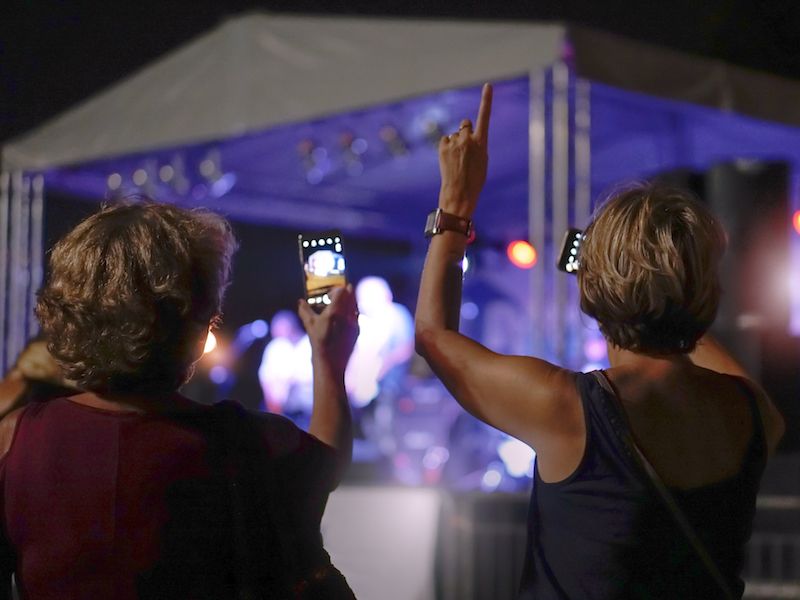
Summer is finally here, and it’s time for all those things we’ve been looking forward to: trips to the beach, chilling out by the pool, and impaired hearing? You may find yourself in environmental scenarios or exposed to other loud noises this summer that are hidden dangers to your hearing. Any sounds above 80 decibels could hurt your ears, while lasting hearing loss can take hold in swimming pools or other bodies of water. You need to take precautions and be mindful of your environment so that you can keep your hearing safe this summer. Keep on reading to learn the summer’s 6 hidden dangers to your ears.
When You go to Concerts, Wear Ear Protection
Whether you’re at an indoor arena or an outdoor show venue you still should use ear protection during live music. Live music can reach over 90 decibels, even at outside concerts, which is within the danger zone of hearing loss. That’s the reason why it’s definitely a good plan to wear earplugs whether you’re seeing a concert outdoors or indoors. Earplugs reduce the sound while still enabling you to hear and get into the music. If you’re taking young kids to a show, consider buying them a heavy duty set of earmuffs because children have more vulnerable ears than adults.
It’s Not Just Loud at Fireworks
Honestly, there are a lot of reasons to avoid fireworks in the summer. It’s not just the 4th of July shows which are professional that can hurt your hearing, we mean the backyard fireworks which every summer season cause many of injuries. Backyard fireworks achieve volume levels of over 155 which can damage your ears along with causing hand problems, loss of vision and home fires. This 4th of July, leave the fireworks to the professionals and enjoy the show from a protected and sound distance.
Lawnmowers Can Cause Hearing Loss
If you’re really serious about your lawn, chances are you’re out there at least once a week on your lawnmower, using your edger, and trimming your bushes. But have you ever noted how off your ears feel when you get done, how everything sounds muffled or your ears are ringing? That’s because the lawn tools, which are constantly loud, have a slow and steady impact on your hearing. You may have noticed lawn professionals using some kind of hearing protection, you should take a hint from them and use earplugs or earmuffs next time you take care of your yard to make sure your ears doesn’t get injured.
How to Protect Your Ears When You’re at Pools And Beaches
Huge numbers of people suffer from swimmer’s ear each summer, which occurs when the ear canal traps water which is high in bacteria. The bacteria will then infect the ear, causing painful earaches and swelling. These bacteria are commonly found in rivers and lakes but could also be found in hot tubs and pools if the water isn’t properly treated. No lasting damage should happen if you have your ears checked out by a hearing professional. To be safe, when your swimming in your pool, use special swimmers earplugs and keep the chemical balance precise to minimize the chance of getting swimmers ear.
Boats and Other Water Sports
The summer season is a breath of freedom for the people who love to be in a boat on the water, taking in the fresh lake breeze or the salty air of the ocean. But, jet ski and boat engines are often noisy,we’re talking over 100 decibels. Continual subjection to that kind of noise for a period of about 15 minutes can result in irreversible hearing impairment. In this situation also, putting on a pair of throw away foam earplugs is a smart strategy.
Car Races Can Hurt Your Hearing
It doesn’t make a difference what type of auto racing you love, motorcycle, midget, Formula 1, drag racing or stock cars. Each one of them can cause a huge problem for your hearing if you attend race after race during the summer season. It’s calculated that volume levels can exceed 120 decibels at some races, which is definitely inside the danger zone for hearing injury. Earplugs are your best friends at these races, although your kids should probably use the earmuffs we mentioned earlier. If not, you might not be able to enjoy the sound of those engines in the future.